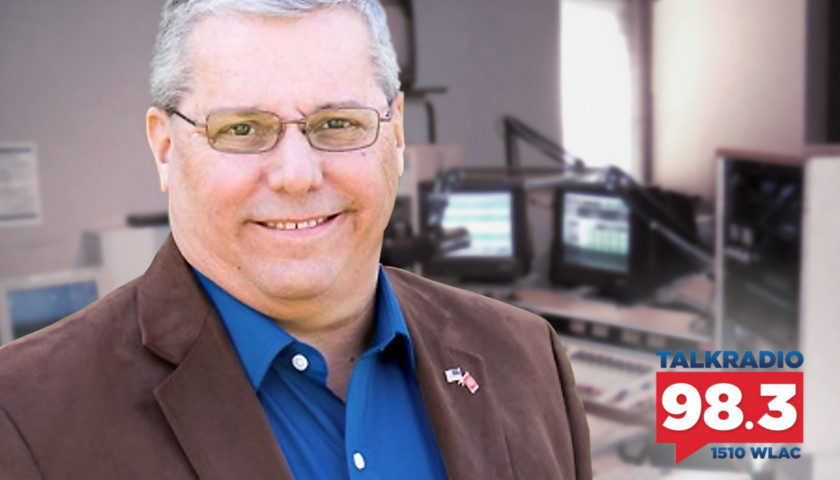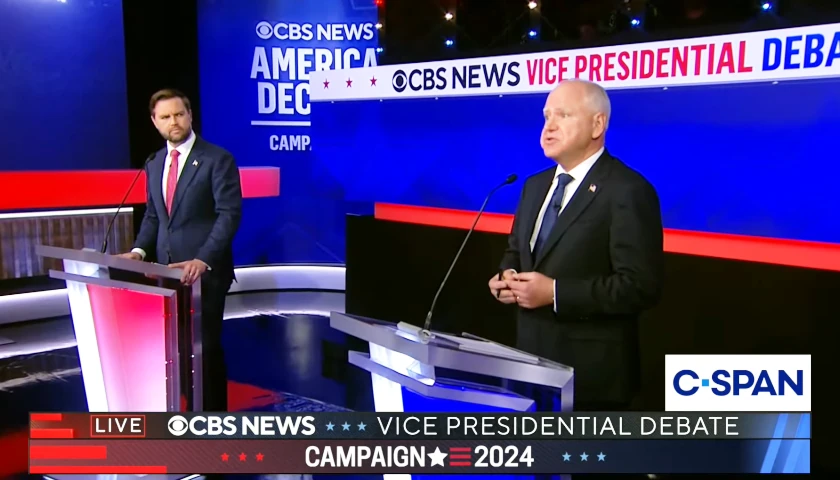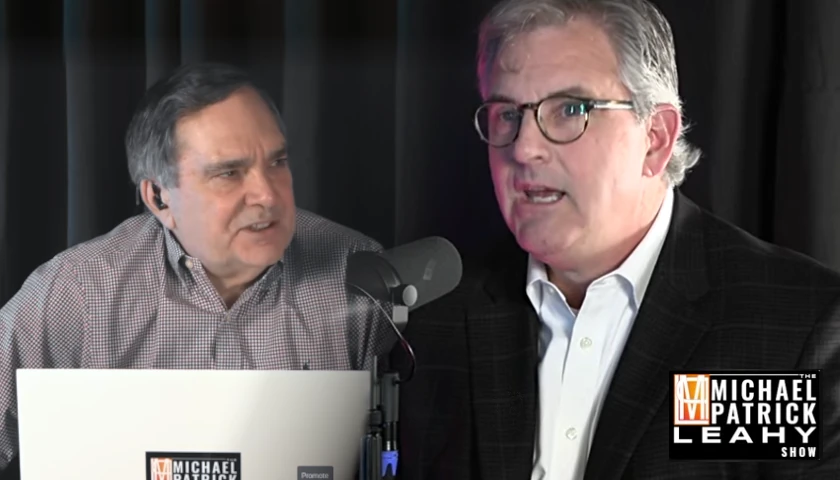Monday morning on The Tennessee Star Report with Michael Patrick Leahy – broadcast on Nashville’s Talk Radio 98.3 and 1510 WLAC weekdays from 5:00 am to 8:00 am – host Leahy was joined in studio with metro councilman, with Steve Glover and all-star panelist Crom Carmichael.
During the third hour, Glover talked about his experience with the Democratic majority in metro council as a conservative Trump supporter and his excellent communications with Mayor Cooper. He noted that right now, the city budget was his main focus so that they could avoid raising taxes.
Leahy: We are joined in the studio by our good friend Steve Glover. Good morning Steve.
Glover: Good morning sir, how are you?
Leahy: And Crom Carmichael, the original all-star panelist.
Carmichael: Yes. Hello again.
Leahy: Now Steve. Our metro councilman at large.
Glover: Correct.
Leahy: What’s doing on in the metro council. What are the big issues?
Glover: Well, for me, there’s only one issue, the budget. There will be a lot of various resolutions and bills being introduced. We’re going to keep talking about the scooters. We’re going to keep talking about the things that affect your daily life. For me, I’m extremely focused on the budget right now.
And the deficits that I feel we need to fill before we even consider doing anything else. This is probably terrible to say, I don’t really mar myself down into the district particular issues right now because I’m not a district councilman anymore.
I’m looking at the city-wide issues. And we have a battle that’s heating up because I’m certain that some folks just want to raise taxes. I don’t. And so I’m just doing my homework and getting ready for it.
Leahy: Good. Well, what’s the general tenor shall we say of the relationship between the council and the mayor right now?
Glover: I’ll share this. I think it’s a good relationship between the council and the mayor. For me personally, the mayor has done everything he told me he would. I’ve met or spoken with this mayor more times in the first four months then I had meaningful conversations with the last two and three mayors in this entire city. We haven’t met face to face that many times but we’ve talked on the phone and had various conversations.
Leahy: So he is actually being open-minded.
Glover: Absolutely. And he’s listening to our views. Doesn’t mean he’s going to agree with everything we say but he’s listening and certainly putting it into his equations. I’ll take that all day long.
Carmichael: Yeah, that’s a big deal. It really is. Question for you. I know that the voters 12-15 years ago, passed, by referendum, something that controls how much the council can raise taxes without coming back to the voters.
Glover: Right.
Carmichael: Exactly how does that work?
Glover: So, I don’t remember the exact number that we can raise it to so I’m going to make one up right now. So let’s be very clear. Let’s say it’s five dollars which it is around five dollars.
Carmichael: $5.00 per what?
Glover: Per 100 on the property tax and the assessed. There’s a whole wide range of formulas that it’s worked with. Right now we’re sitting at about $3.15. Now, we don’t have a full $1.85 but I think we’ve got a $1.60/$1.70 before we would begin to cross that threshold.
Ben Cunningham, in fact, is the one that led that. Voters voted on that and said nope, you can’t raise your ceiling above this amount without coming back to us. What has happened obviously is property values in Davidson county have just exploded.
Leahy: Right. It’s the IT city.
Glover: Right. Right. And so now we’re down to like $3.15. And we have so many people on the other side saying, well we haven’t adjusted our rates as we should. We should be getting more of your money out of your pocket because we’re so good at managing it for you.
But what they don’t talk about the 32% increase in revenues because of the explosion in property values and the additional revenues that we’ve been receiving. We don’t talk about, in a positive way the tourism business that’s really been great for us because so much of that money got allocated to take care of the bond from the MCC.
Leahy: The MCC being?
Glover: The Music City Center.
Leahy: Got it.
Glover: So we’ve made some pretty big mistakes as far as projecting out revenue and where that revenue needed to go without an exit clause. And that’s one thing that the mayor has been really working on along with Kevin Crumbo finance director.
Leahy: We call him Kevin ‘Rambo’ Crumbo
Glover: I know you guys do. I call him Mr. Crumbo because I got to tell you, he kept us from having the state take us over.
Leahy: Which is a very good thing.
Glover: Anyway, a lot of mistakes were made in the past and we just got to get them fixed and bring it back to the locals.
(Commercial break)
Leahy: What’s it like being a conservative on the metro city council and a Trump supporter? What’s that like?
Glover: Believe it or not, I’m having more fun being elected to office. And let me tell you why. The people of Nashville went out and voted and elected me. So, it’s my job to make sure that we don’t let our guards down. And to make sure, in my opinion, this is my job, is to make sure I represent our views with regards to the conservative side of things. So, to tell you it’s a walk in the park, no. Absolutely not.
Leahy: Do people come up to you and say, I’m so glad we have a conservative on the council. (Leahy laughs)
Glover: I hesitate to say that because it sounds egotistical. But it does happen.
Leahy: Does it?
Glover: It happens all over Nashville.
Leahy: How about your council members? (Leahy laughs)
Glover: I don’t think they feel the same way some times.
Carmichael: Let me ask you a question. Most of the so-called left of Nashville, they are not as left as the leftists are in say California or New York. They’ll talk to you. You can have conversations. But here’s my question for you. It is a known fact that our public schools, our government-run schools are not doing a good job.
They are not doing a good job and have never done a good job. So if somebody claims that if they just had more money, that to me is like saying that a coaching staff that is 0 and 11 year after year, if you just doubled their pay they wouldn’t be 0 and 11 next year by keeping the same coaching staff.
I have maintained the reason that government-run schools don’t do a good job is that the competition is the only way you can have the free flow of information on how to change and do a better job. Businesses adjust because they have to or they go out of business.
A government-run school does not go out of business all on its own because it’s funded by sources other than customers. So my question is, what does the city council say to the question, if you ask, what can we do to fix our schools? Do the Democrats on the city council, is their only answer, (Slow voice) we need more money?
Glover: So if you are a council member or the mayor under the state constitution, the only people who control the schools, are the school board. They hire the director of schools. They set the policy of the director of schools and then they implement it. They have one employee. That’s it.
Leahy: However, the budget at the high level is approved by the metro council right?
Glover: Right. And we give them a check with a dollar amount written on it and that’s as far as we get to go.
Leahy: And they can spend it however they want.?
Glover: However, they want, right.
Carmichael: Charter schools are funded with taxpayer money?
Glover: Correct.
Carmichael: Is that a separate line item in the budget?
Glover: Well, it is but it’s not because it still comes out of the same bucket.
Carmichael: But what I’m asking is that it’s not under the director of schools?
Glover: No, no, no. Our state has very specific laws on what dollars have to follow each student.
Carmichael: So if charter schools continue to expand then our government-run schools will naturally shrink in importance.
Glover: So you try to project out unintended consequences because I was on the school board also.
Leahy: Before you became a metro city councilman.
Glover: In the interest of full disclosure, I didn’t like the charter school movement because the numbers could never make sense from the very beginning. They were taking one kid from here, one kid from there. We still had to have all the principals and all the teachers and the traditionals.
Yet it was starting to drain the money out of the public school system. That being said, now it’s equalized. Now we’ve gotten to a point where we have enough children out there in the charter school system that you can no longer make that argument. It’s equalized.
Listen to the third hour here:
– – –
Tune in weekdays from 5:00 – 8:00 am to the Tennessee Star Report with Michael Patrick Leahy on Talk Radio 98.3 FM WLAC 1510. Listen online at iHeart Radio.





